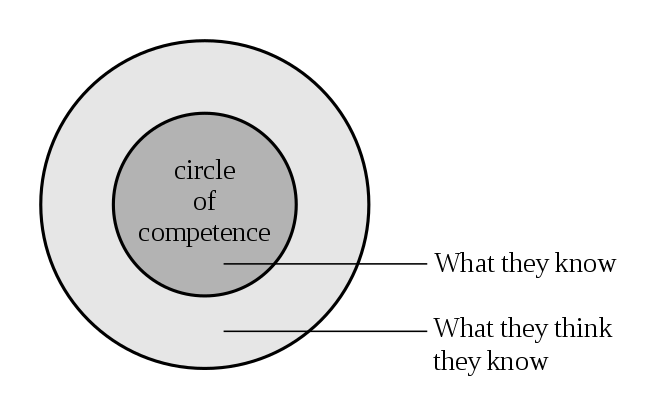This book is a toolkit designed for practical living. Here you'll find fifty-two happiness hacks - from guilt-free shunning of technology to gleefully paying your parking tickets - that are certain to optimize your happiness. These tips may not guarantee you a good life, but they'll give you a better chance (and that's all any of us can ask for).
Dobelli largely focuses on modesty, on not being overly flashy and that the “mediocre” is often okay. So as someone who generally reads various business books and enjoys following 'successful' entrepreneurs, it was a well-needed refresher that we all have a limited resource of time, focus, and energy, and we should be mindful of where we spend those resources.
Key takeaways
For me one of the key 'tools' that really stuck with me from this book was the circle of competence and was worthy of being added to my Topic Forest on Notion.
Circle of Competence
Originally devised by Warren Buffet and Charlie Munger the circle of competence.

The mental model aims to describe limiting one's financial investments in areas where an individual may have limited understanding or experience, concentrating in areas where one has the greatest familiarity. But for me, this model stretches further than just finance and can also be applied to most other areas of work and life, and this is how Dobelli applies it.
To me, Buffett summarized the concept best in his motto.
"Know your circle of competence, and stick within it. The size of that circle is not very important; knowing its boundaries, however, is vital."
Generally as humans we have the capacity to devote ourselves to being good at a lot of things, but ultimately focusing your skills and attention on being great at a few things.
Other models that I liked
Alongside this standout model, a few other models or as Dobelli nicely puts it - 'tools in your mental toolbox' that I particularly liked were:
The five-second no
Saying no and saying yes without a second thought will ultimately give you more work and stress than you’re expecting, so it’s good to take a few moments to consider it and give a response that’s true to you and your circle of dignity.
The circle of dignity
This is your individual pledge and it protects you from 3 forms of 'attack':
- a) better arguments;
- b) mortal danger;
- c) deals with the Devil.
You need to know where your boundaries lie. One should have a clearly demarcated circle of dignity.
Dobelli adds that finding your circle of dignity is a process. You can't find it until you’ve lived a little, lost a little, and experienced the world in real time.
